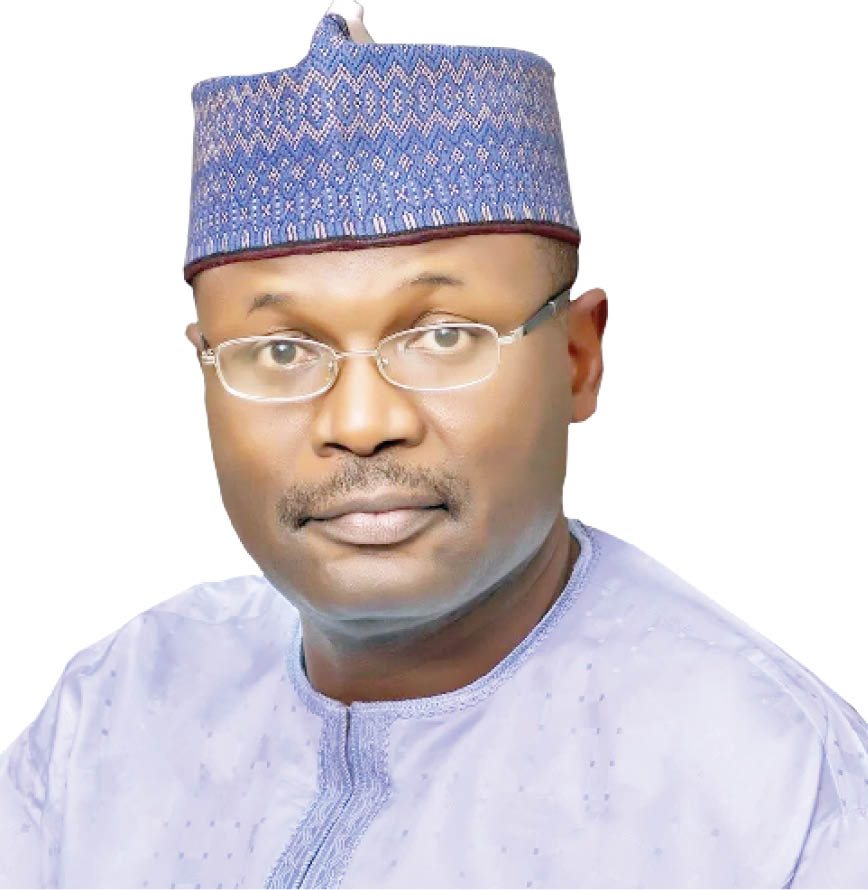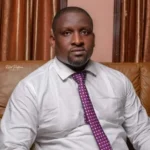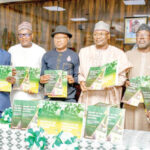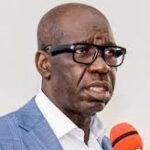Ahead of the 19th September and 10th October governorship elections in Edo and Ondo states respectively, the Independent National Electoral Commission (INEC) has read the riot act to politicians planning to undermine or disrupt the process.
The INEC Chairman Prof. Mahmood Yakubu, threatened that the commission would not declare the results if politicians disrupt the process.
- Edo APC drags Oshiomhole, NWC to court over waiver to Ize-Iyamu
- UI faults Oshiomhole, confirms Obaseki’s certificate
Yakubu gave the warning while speaking at a virtual meeting on “Democracy and Elections in West Africa”, organised by the Centre for Strategic and International Studies (CSIS), Washington DC in collaboration with the Centre for Democracy and Development (CDD) on Tuesday.
At the event, which sought to put the limelight on the future of democracy in the West African, the INEC boss assured of the commission’s commitment to free, fair and credible elections.
Yakubu warned that where an election is disrupted, the commission will not make a declaration on the outcome due to lack of adherence to guiding rules of the election.
“Where the election is disrupted and the commission cannot vouch for the integrity of the process, we will not go ahead to make any declaration,” he warned.
He said there will be no point making a declaration in such situation because the commission will not endorse fraud or function outside the minimum standard set for the conduct of credible elections anywhere.
“While elections are disrupted, we should look far beyond the electoral commission. I think you put your fingers on the problem, on the political class and the security challenges. And that is why we have been engaging with them.
“I had a meeting with the National Security Adviser (NSA), we are meeting with all the security agencies. But what pro-active measure is the commission going to take to ensure that if there is a replay of what happened in Bayelsa and Kogi, we will protect the integrity of the process,” he added.
He said proper measures have been put in place to contain the possible spread of COVID-19 among voters and officials.
According to him, machines used for voter authentication will be disinfected, the use of face masks and a two-meter (six feet) physical distance between voters will be enforced while infrared thermometers will be provided in voting and collation areas.
On litigation, he said, “INEC is one of the most litigated against public institutions in the country. In the last one and the half years over the conduct of the general elections and party primaries, we have been dragged to court over 2000 times and it is counting.”
He also lamented the zero turnout of female candidates for the scheduled elections in Edo and Ondo states, adding “I was looking at the number and names of candidates for the election and I didn’t see a single female.”
In her address, the Director of CDD, Idayat Hassan, called for sanctions against political parties and individuals who make efforts to jeopardize electoral systems in African countries.
She said that unruly behaviour by politicians and their supporters should not be condoned.
Speaking on the challenges the nation might experience in conducting these elections amid the Coronavirus pandemic which has ravaged the globe, Hassan said efforts must be made to ensure the process is free, fair and credible.
On his part, the Executive Director of CDD Ghana, Henry Prempeh, said the COVID-19 pandemic has compressed election in the country.
Prempeh said the disease pandemic has created legitimacy issues for Ghana as electoral problems are rushed through the adjudication process.

 Join Daily Trust WhatsApp Community For Quick Access To News and Happenings Around You.
Join Daily Trust WhatsApp Community For Quick Access To News and Happenings Around You.


